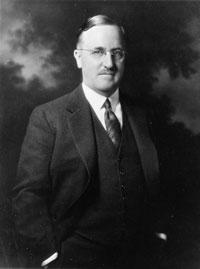A Quote by Anthony Trollope
I doubt whether I ever read any description of scenery which gave me an idea of the place described.
Related Quotes
I doubt if I shall ever have time to read the book again -- there are too many new ones coming out all the time which I want to read. Yet an old book has something for me which no new book can ever have -- for at every reading the memories and atmosphere of other readings come back and I am reading old years as well as an old book.
Never can a new idea move within the law. It matters not whether that idea pertains to political and social changes or to any other domain of human thought and expression - to science, literature, music; in fact, everything that makes for freedom and joy and beauty must refuse to move within the law. How can it be otherwise? The law is stationary, fixed, mechanical, 'a chariot wheel' which grinds all alike without regard to time, place and condition, without ever taking into account cause and effect, without ever going into the complexity of the human soul.
I was a very determined kid. I couldn't imagine any other life for myself. This happens to kids who are different in any way. How am I going to make a life? Who am I going to be when I grow up? Will there be a place for me in the world? Acting gave me a sense of purpose, but it also gave me a sense that I would survive, that I would find my place.
I remember that the single most vicious letter I ever read was the letter Hemingway wrote Scribners when they asked him to give a blurb for From Here to Eternity. It's there, in the Selected Letters for all to read, an example of a once great writer at his very worst. I doubt that he ever forgave Scribners for publishing James Jones in the first place. War, as Hemingway saw it, belonged to him.
...the French Revolution gave rise to ideas which led beyond the ideas of the entire old world order. The revolutionary movement which began in 1789... gave rise to the communist idea which Babeuf's friend Buonarroti re-introduced in France after the Revolution of 1830. This idea, consistently developed, is the idea of the new world order.







































